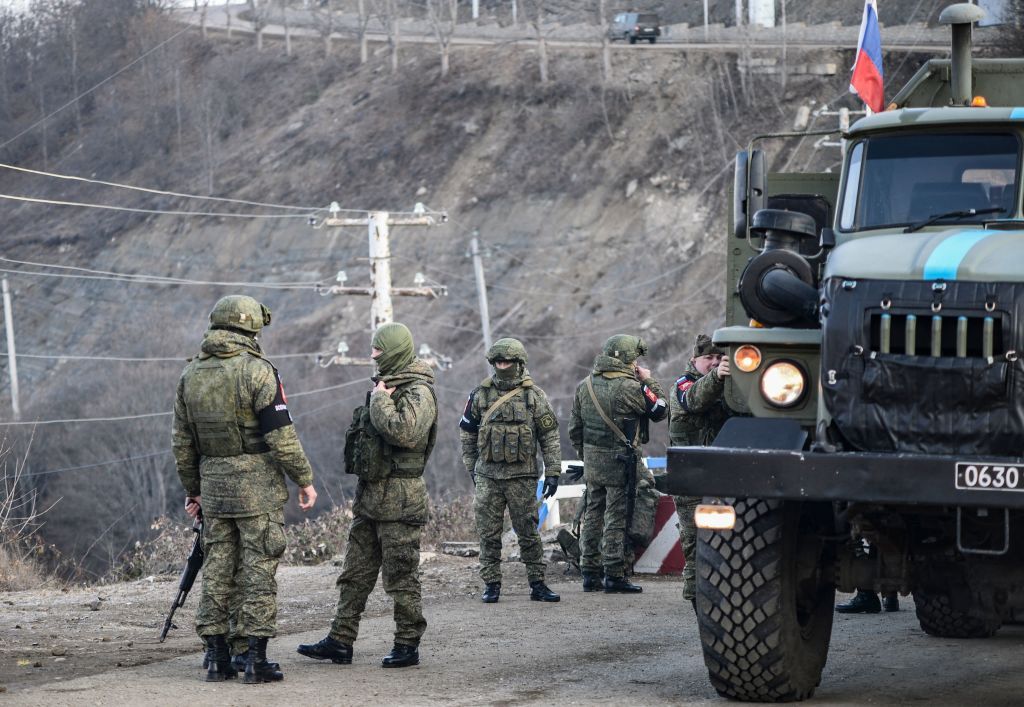Azerbaijan, Nagorno-Karabakh authorities discuss 'reintegration' of local Armenians

Azerbaijani officials held talks with the authorities of the self-proclaimed Nagorno-Karabakh, presenting Baku's alleged plans for "reintegration" of the region's Armenian population, the Azerbaijan State News Agency (AZERTAC) reported on Sept. 21.
During the talks held in the Azerbaijani city of Yevlakh, Baku's officials reportedly agreed with the request of Karabakh's representatives to provide humanitarian assistance, namely food and fuel.
The two parties also discussed restoring infrastructure in the region and implementing Baku's demands provided by the ceasefire agreement on Sept. 20, AZERTAC said.
The media report did not provide further details on the integration of local Armenians. Previously, Yerevan raised fears that Azerbaijan's military operation is part of its plan to "ethnically cleanse" the region.
Upon the conclusion of the meeting, also attended by a Russian representative of the Russian-Turkish Joint Monitoring Center Rear Admiral Oleg Semyonov, the parties reportedly agreed to hold a follow-up meeting in the near future.
Following Azerbaijan's military offensive launched on Sept. 19 and advances into the territory held by the ethnic Armenian forces, authorities in the capital of Stepanakert (Khankendi in Azerbaijani) agreed to accept a ceasefire earlier on Sept. 20 mediated by Russia.
According to the terms of the proposal, any remaining Armenian troops must leave Azerbaijan territory and there must be a "dissolution and complete disarmament of the Armed Forces of Nagorno-Karabakh."
Earlier on Sept. 21, Karabakh's Armenian authorities claimed that the Azerbaijani military had violated the ceasefire and continued to attack Stepanakert.
Nagorno-Karabakh is recognized as Azerbaijan's territory under international law. Its population of 120,000 is predominantly Armenian.
The territory declared independence in 1991 with Yerevan's military support. Until 2020, Armenia de facto controlled Nagorno-Karabakh together with the surrounding regions.
In 2020, Azerbaijan launched a military operation establishing control over parts of Nagorno-Karabakh.
In November 2020, Russia brokered an armistice between Armenia and Azerbaijan. Moscow sent forces to patrol the Lachin corridor, the only road connecting Nagorno-Karabakh with Armenia.
In 2022, Yerevan accused Russia of failing its peacekeeping mission when Moscow began withdrawing its troops in 2022 and allowed Azerbaijan to blockade Nagorno-Karabakh, preventing basic supplies from reaching the population.
The U.S. and EU have called on Azerbaijan to end the blockade. In February 2023, the International Court of Justice (ICJ) ruled in favor of Yerevan's appeal to unblock the corridor.
Commenting on the issue, Azerbaijani President Ilham Aliyev said "Armenians living in the Karabakh must either accept Azerbaijani citizenship or look for another place to live."















